
hen do-it-yourself publishing first came on the scene, many writers saw it as a means to an end. If queries and sample chapters couldn’t get traditional publishers to sit up and take notice, maybe a proven track record would. Success stories like Christopher Paolini and Amanda Hocking, whose determination and hard work garnered contracts with traditional publishers, proved it was possible. While traditional publishing remained my goal, this new model seemed to be a path to consider.
Recently, I heard about Nan Cappo, an author who decided to break off on her own after being traditionally published. As a writer who has spent several years chasing the Holy Grail of traditional publication, I found it intriguing that anyone who had attained it would choose to walk away. Her choice made me question everything I thought I knew about publishing. My husband would be the first to tell you I can be a bit resistant to change; but soon after I heard about Nan, I stumbled across a quote from Ralph Waldo Emerson: “Beauty is the moment of transition.” This idea, appearing right on the tail of my conversation with Nan, seemed serendipitous. Maybe there is no Holy Grail, but many paths to publication. To define the right path for me, I needed answers from authors who have embraced transition. Their candid answers surprised me. Hopefully, they will provide the insight you need to decide which path to publication is right for you.
Here’s a little background on our guests:
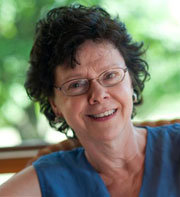
Nan Willard Cappo majored in English at Notre Dame and earned an MBA from the University of Pittsburgh. While working various sales and teaching jobs, Nan wrote fiction for children and young adults. In 2003, Simon & Schuster/Atheneum published Nan’s first novel, Cheating Lessons, to starred reviews. The book was also nominated for the Mystery Writers of America’s Edgar Award as “Best Young Adult Mystery.” In 2011, Nan founded Tadmar Press in order to self-publish her crossover novel, Unaccounted For, and is currently working on the sequel. Visit her at www.nancappo.com.
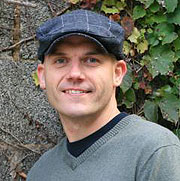
Bryan Chick lives in Michigan with his wife and three young children. Bryan went to four colleges and changed majors at least six times. He worked most recently in the IT field as a network engineer before quitting to publish and promote The Secret Zoo in 2007 through his own press. Greenwillow Books (an imprint of HarperCollins) picked up the title in 2010. The fourth book in the series, Traps and Specters, is due out this fall. You can find out more about him and his Secret Zoo series at www.bryanchick.com.
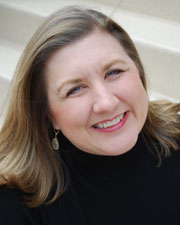
Susan Kaye Quinn writes from Chicago, where she lives with her husband, three sons, and two cats. With a Ph.D. in engineering and job experience designing aircraft engines and studying global warming, Susan describes herself as a “rocket scientist and author.” Her first novel, a teen romance titled Life, Liberty, and Pursuit, was published by Omnific, an independent publisher owned and managed by women. Susan went indie for her next project, Open Minds, a paranormal/sci-fi young adult novel. Following that book’s success, Susan published a sequel, Closed Hearts.
She’s currently working on the third book in her Mindjack trilogy. More information is available at https://www.susankayequinn.com.
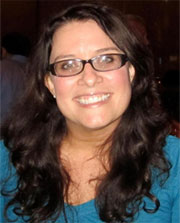
S.R. Johannes is the author of the Amazon bestselling Untraceable (a teen thriller set in the wilderness) and On the Bright Side (tween paranormal). She has published short novelettes as well as a teen romance anthology with sixteen other authors. Uncontrollable, the sequel to Untraceable, is scheduled for release in fall 2012. Shelli is the 2012 winner of the Indie Reader Discovery Awards for YA and was recently nominated in the YA category as “Georgia Author of the Year.” After earning an MBA and working in corporate America, Shelli traded in her expensive suits, high heels, and corporate lingo for a family, flip-flops, and her love of writing. She lives in Atlanta,
Georgia with her dog, British-accented husband, and the huge imaginations of their little prince and princess, which she hopes—someday—will change the world. Learn more about her at www.srjohannes.com.
***
WOW: It’s so great to have the opportunity to speak with each of you today. Thanks for agreeing to share what you’ve learned through your transition between publication paths.
Nan, when I first heard about your decision to self-publish, I was surprised. It seemed you had the perfect recipe for success: a well-reviewed book from a major publisher, a hard working agent who believed in you, and a great story. Could you start by telling us a little bit about why you decided to change the way your books were being published?
Nan Cappo: Many of my friends who are traditionally published are finding it harder to get published. After two rounds of rejections for a book she loved, my agent was flummoxed. Unaccounted For is contemporary fiction, apparently one of those hard to categorize titles that don’t match current blockbuster YA genres—fantasy, paranormal, and dystopian. When publishers aren’t buying pieces about whales, it doesn’t matter that you’ve written Moby Dick. If your agent feels she can’t sell the book, you have no other choice than to do it yourself.
WOW: Susan and Shelli, you also started out with the traditional model before striking out on your own. What led to that decision for each of you?
Susan Kaye Quinn: I published my first YA novel (Life, Liberty, and Pursuit) through a small press, and they would have taken my second YA novel. Instead, I queried agents, thinking I might have a shot at a large publisher picking it up. I had a lot of agent interest but ended up pulling the manuscripts from several agents. I didn’t want to wait the one to two years it would take to get the book out (or go through the whole agent/editor search only to find that they took a pass). When I realized I would ultimately self-publish the novel anyway, I decided to pull it from the agent search and self-publish sooner rather than later. I thought I had a good chance at being successful as an indie publisher (which happily turned out to be true and continues to be the case with the second novel in the series out now).
The small press [Omnific] would have released the novel faster than a large press could have, but I thought I could price it better as a self-published author. I also felt like Omnific wasn’t as focused on the YA market as I would like.
Shelli Johannes: I focused on traditional publishing for eight years. I’ve had three books go to acquisitions—only to not make it for whatever reason. My books were also with a New York agent for two years, so they had been through the editing ringer as well as through many non-contractual revisions at a couple different houses. It was so frustrating that I had nothing to lose in self-publishing those books. I needed to move forward, and I knew my books were good enough.
WOW: Bryan, your first book was self-published. Did you submit it to traditional publishers before making that choice?
Bryan Chick: Yep. For years. I couldn’t get a single agent interested. I don’t think agents could categorize it or decide if there was a market for it, and this made them nervous. Agents have their own challenges, and they answer to publishers, who ultimately answer to consumers.
WOW: But then HarperCollins made an offer. What did you do that attracted their attention?
Bryan: I sold over twelve thousand copies.
WOW: You say on your blog that school visits played a huge role in that.
Bryan: Without school visits, I would have had very little success. Even my publishing deal was the direct result of a school visit. I know authors are typically shy, nervous types (I’m one after all), but they need to work past this. I used to get so nervous during school visits, and now I absolutely love them. Kids are awesome. They really are my peer group.
WOW: Would you ever consider going back to self-publishing?
Bryan: Absolutely. I miss having the final say in the cover art. I also miss the satisfaction of being my own press. I have an independent spirit, and I took a lot of pride knowing that my little book could directly compete with books that major New York publishers were putting out. The self-published Secret Zoo was every bit as attractive and worthy as all the other books it sat by on the shelves, I think.
WOW: It seems like an independent spirit is a prerequisite for being successful as an indie author. Has that been the case for any of you?
Susan: For the first time, I feel my author career is completely in my control and that fits well with my entrepreneurial personality. For people who are independently minded and not seeking the “validation” that comes from someone else investing in your work, self-publishing can be a great, liberating choice.
WOW: What other qualities are helpful in transitioning to the indie world?
Shelli: My marketing background has been essential to self-publishing in terms of promoting as well as overall design and going to market. I know what I need to do, and I’m not afraid to find and try different things.
Susan: Bravery and a willingness to experiment.
Nan: Trust your own sense of what’s good. Having had a traditionally published novel was a huge help because I knew what good editing was, and I knew good writing. I got good at deconstructing other YA novels.
“The trend of the last three to four years has been to pay less and less to writers, while charging more and more to the public.”
WOW: Would you ever consider going back to traditional publishing?
Nan: I don’t think so. If I do, I’ll hold out for a much more balanced contract. As a self-publisher, you keep a much bigger share of the money, so it’s worth spending upfront to get your book known. Conventional publishers have a huge infrastructure. The trend of the last three to four years has been to pay less and less to writers, while charging more and more to the public. With my traditional publisher, I made a 6 percent royalty on Cheating Lessons; now I earn 70 percent on e-books and 40 percent on print.
Shelli: I would never say never. It [indie publishing] is what I needed after two years of rejections at publishing houses with my agent. But someday, I would love to straddle both sides of the industry. I love the control of self-publishing, but I would also love to experience the process of traditional publishing. I am having fun now and have no clue how I will feel in six months or a year.
Susan: It would depend on the book and the deal. For my current YA Mindjack series, I wouldn’t consider any traditional offers (if they were made) unless they would make me more money than indie publishing and wouldn’t delay the release of the final novel/short stories I have planned. On the other hand, I have a couple of middle-grade projects that I would love a traditional offer for because I believe middle-grade readers are still reached primarily through paper books and the traditional distribution system. And I would love to see those projects reach readers!
“I believe middle-grade readers are still reached primarily through paper books and the traditional distribution system.”
WOW: Bryan, what’s been the best thing about traditional publishing?
Bryan: I don’t have to worry about things that publishers should worry about. One time when I was self-publishing, I had a print run of fifteen hundred books that had signatures (pages) out of order. My wife and I, along with a representative from the printer, had to sit down and thumb through each book individually. Nightmare. Another time I had covers with bad color. Not fun, and I’d so rather concentrate on writing.
WOW: Susan brings up an important point about the different publication models between adult fiction and fiction written for children and teens. Has self-publishing hindered your ability to reach that younger crowd?
Nan: Adult genres are moving from traditional to self-published, but the trend isn’t this way in children’s literature. Although I sell more e-books to older readers because, in general, e-readers are more adventurous, more willing to take a risk on new authors, I underestimated the importance of ARCs [Advanced Reader Copies]. Big publishers can afford to send out hundreds of ARCs for reviewers. Children’s literature relies heavily on librarians, who in turn rely on those reviewers. With self-publishing, I do not have near the exposure.
Bryan: Whether you self-publish or traditionally publish, you are going to be the primary one responsible for promoting your book and making it sell. A publisher will do very little to promote your book. An author should have some type of platform to generate sales. I did school visits for free the first year. Teachers who enjoyed the presentation spread the word. It was really that simple. I never had any success phoning schools and very little success doing fliers. I landed a positive review in School Library Journal, which resulted in at least two thousand sales into libraries across the nation.
WOW: The publishing industry—whether traditional or indie—has a pretty steep learning curve. What has been the most useful thing you’ve discovered on your journey?
Shelli: To write what you love, not what is a trend. I get so many ideas—this helps my good ideas float to the top—the ideas that light my fire. Not the ones that are “in style.”
Nan: Hire professional editors, book designers, etc., for a flat fee. You can find many on Elance. I also joined the Goodreads site. It’s like Facebook, only just for readers. It’s full of people who are only there because they like to read, so already your demographic is narrowed. It offers promotional tools helpful to indie writers. It also allows authors to engage in book giveaways or previews of e-books.
Amazon’s Kindle Direct Publishing Select offers free download days for e-books, which increases your exposure. It pays royalties when readers borrow your books through the Kindle Owners’ Lending Library [also requires that the book be exclusive to Kindle during that time period]. Amazon is huge for e-book sales—it pays to keep a close watch on them. Just remember, they exist for their customers first—not authors.
Susan: The amazing support of the writing community in taking the leap. I’m part of a twenty-five member YA indie author group (The Indelibles) who support each other on our indie publishing journey—the road is much smoother when you have friends along on the journey.
Bryan: Learning to be patient with traditional publishing and the business model. They typically work at a slower pace than I am accustomed to.
WOW: So, in hindsight, is there anything you wish you’d known?
Nan: I underestimated the discoverability problem, which is what you have when you’ve written a great book, but no one knows. I thought some people who bought Cheating Lessons would buy the new book, but they haven’t. They just don’t know it’s out there. The biggest barrier in self-publishing is getting reviews. Kirkus offers a so-called impartial review, which allows you to pay to have your book reviewed. The author maintains control over the publicity of that review—if it’s good you can use it for your website, book jacket, etc., and Kirkus will post it on their site. If it’s bad, you can bury the review.
Bryan: Securing a large New York publisher is not the end game that many people think it is. Few authors are wealthy. The vast majority of authors never earn back their advances and see royalties. Stephen King and J.K. Rowling are exceptions. Most authors can’t quit their day jobs.
Susan: That this would be so much fun. I would have been less terrified taking the leap.
Shelli: How many roles I would have to play in self-publishing! I must wear about thirty different hats at a time, so I write less. It’s hard to balance writing with promotion. In self-publishing, you do it all—from editor to designer to marketer to legal to accounting. It can be exhausting, just like running your own business. I had no clue it would be this hard.
WOW: Any regrets?
Shelli: Maybe I wish I did it sooner. I sat on my book for six months after it was in submissions for two years. I spent that time really researching the self-pubbing industry to make sure it was a step I wanted to take and that I did it right.
Bryan: My only regret is not self-publishing sooner. I tried for years to get an agent interested in The Secret Zoo; I could have spent those years writing instead.
“Know what you want before you go chasing after it.”
WOW: You’ve each given us so much to consider as we face the changing world of publishing. Would you like to add any closing advice?
Susan: Self-publishing, small press, big six publishers—they are all legitimate ways to get your books published. To me, publishing is a means to an end (readers), not an ideology or a long-held dream. For some people, pursuing the dream of that big six contract is what will bring them satisfaction, and so they should do that. For many, small presses offer an opportunity to get started in publishing without having to do everything yourself—many small presses pride themselves on being stepping stones for authors in their careers and want to help make that happen. For more and more people, self-publishing is a viable way to make money from your writing, build a fan base, and potentially make your writing into a career. The most important thing: know what you want before you go chasing after it.
Nan: The most important asset a writer has is her time. However you publish, self-discipline is essential and will help you get multiple titles up, which is the best way to make self-publishing pay.
Shelli: Make sure you do your research on self-publishing and know how hard it is. It is not the easy way out. If you do not want to run a business, self-pubbing may not be for you. Take your time and do it right. I always say self-pubbing is a shortcut to market, not a shortcut to writing. So put out your best work.
Bryan: Just go, go, go. Don’t stop, and don’t get discouraged. It’s your story, but it has a life and will of its own. Be prepared to follow it anywhere.
WOW: Thank you Nan, Bryan, Susan, and Shelli for taking the time to share your unique insights with WOW! readers.
Ralph Waldo Emerson once wrote, “Nothing is secure but life, transition, the energizing spirit.” It seems like each of our guests has embraced transition, making it part of the energy which propels their personal journey. From the expertise they have shared today, one thing is pretty clear, no matter which path a writer chooses, her journey into the world of publishing will require a level of determination and commitment beyond what most new writers anticipate.
***
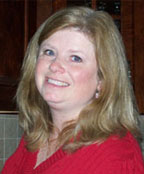
Kathy Higgs-Coulthard is founder and director of Michiana Writers’ Center in Indiana, a fun job that provides just enough income to support her addictions: caramel macchiatos and frenzied bursts of caffeinated fiction writing. Kathy recently found a publisher for her middle-grade book and is hard at work on revisions.
-----
Enjoyed this article? You may also like:
The Smell of Success: Transitioning the Pen and Paper Crowd to E-books
Self-Publishing: The Debate is Over
DIY Copyright for Self-Publishing: 5 Things You Should Know
Creating Book Covers that Sell
How to Format Your Manuscript for Kindle and NOOK
How to Successfully Market Your Book
How to Track Your Book Sales in Real Time
Getting Your Author Brand On: Interview with Shelli Johannes